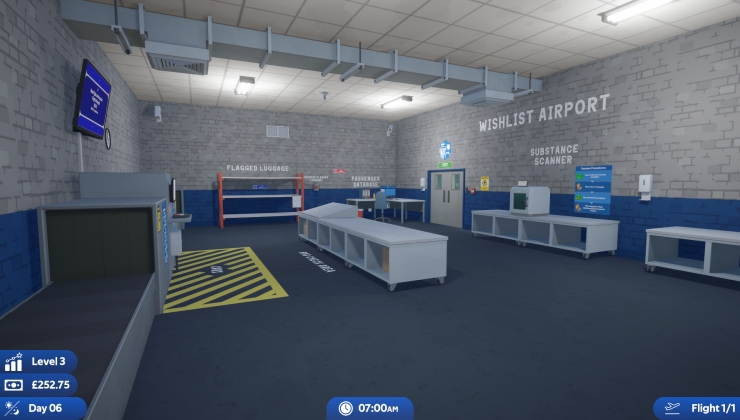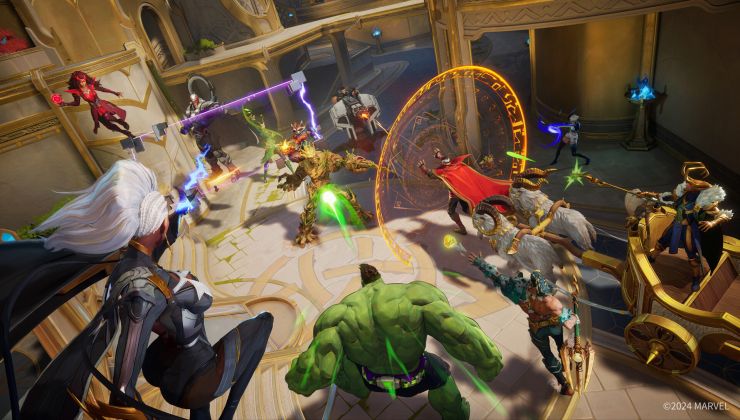The Unity game engine continues advancing at a truly rapid pace, with Unity 2019.1 being released today.
Quite an exciting release for developers with all the new features but for Linux developers especially, it's a good day. The Unity editor for Linux has left Experimental status and moved into Preview mode. What does it mean exactly? In their own words "we are now on a path to a fully supported version by the end of the year".
For the Linux editor, they will be giving priority to Ubuntu 16.04 and 18.04 as well as CentOS 7, 64bit, the GNOME desktop environment on X11 as well as the proprietary NVIDIA driver and AMD Mesa.
Their "High-Definition Render Pipeline" has also seen some advancements, including better support for Linux and Vulkan with "fewer artifacts" although some issues do remain. Their SRP batcher is now supported on OpenGL Core 4.2+, OpenGL Core and OpenGL ES 3.1+ now have full support for CBUFFERs in shaders, Vulkan and OpenGL also saw some compute shader compilation optimizations, there's initial sparse texture support for Vulkan, there's also a number of Linux-specific bug fixes that made it into this release like the annoying "game is not responding" issue seen on GNOME desktops with Unity-built games and so on.
There's absolutely masses of new and improved features, far too much for me to post here without ending up with a ridiculously long list so I do suggest you check out their full update post here.
What's also awesome, is their latest short film which was made with Unity 2019.1 which you can see below:

Direct Link
Like Rust
:(
Does this help fix bugs on Unity games?
Like Rust
:(
The bug in that game is the developer.
It's nice to see Unity improving all the time, and extra cool to see officially supporting AMD + Mesa. All of that becoming more & more stable, and easily installed or available out of the box, along with native GNU/Linux editor support would be a huge boon to game development on GNU/Linux itself. I've often said that porting after making a game is one thing, but developing it natively is something else entirely and ideally what we'd like.
Wonder what the push is for this recently. Not that I mind.
Might be Stadia - that runs natively on Linux, and while it has it's own SDK, I assume many similarities to desktop Linux in things like scheduling remain
I had thought of that, but I'm not seeing much extra from the other engine developers in the same area. So maybe it's just Unity being awesome, like how they were first to the GNU/Linux desktop for many indie developers. Perhaps just natural progression.In fact, Unity is not just about games. Some film, automotive and AEC (Architecture, Engineering, & Construction) companies are also Unity users and they do use Linux as their main driver.
I've no personal experience, but by all accounts Godot has been developing very fast and is indeed a long way from where it was 5 years ago. Apparently very good for 2d, still needing a fair amount of work for 3d is the impression I've gotten around here.I switched from evaluating Unity to Godot. It is a shame, that such a design- and developmenttool is not able to scale its GUI correctly with the monitors resolution. On a 4k monitor, it was/is a pain to use the Unity editor.
Yeah, bugs and the GUI scaling made me shelf a project hopeful they fixed it. With that said, has Godot got a lot better it seemed very limited over 5 years ago when I played around with it.
Does this help fix bugs on Unity games?
Like Rust
:(
only if the developers update their game to the lastest unity version, wich is unlikely since it can introduce new bugs (unity has dropped support for their pseudo javascript, wich means any game made with it will have to be rewritten in c#, unity also droped support for the other language that i cant remember the name, not to mention that unity may have broken backward compatibility with a few things)
It's nice to see Unity improving all the time, and extra cool to see officially supporting AMD + Mesa. All of that becoming more & more stable, and easily installed or available out of the box, along with native GNU/Linux editor support would be a huge boon to game development on GNU/Linux itself. I've often said that porting after making a game is one thing, but developing it natively is something else entirely and ideally what we'd like.
Wonder what the push is for this recently. Not that I mind.
Might be Stadia - that runs natively on Linux, and while it has it's own SDK, I assume many similarities to desktop Linux in things like scheduling remain
I had thought of that, but I'm not seeing much extra from the other engine developers in the same area. So maybe it's just Unity being awesome, like how they were first to the GNU/Linux desktop for many indie developers. Perhaps just natural progression.
it takes time to do it, the only reason why unity could promisse official linux support so soon is that they
1)have tons of money
2)already had an experimental working build (not officialy supported)
I have been using 4k with Nvidia GTX 780 ti, I am not having much issues, I just use hidpi in general settings, and switch the driver core to Vulkan in Player Settings of Unity. Pretty much smooth sailing.











 How to set up Decky Loader on Steam Deck / SteamOS for easy plugins
How to set up Decky Loader on Steam Deck / SteamOS for easy plugins
See more from me